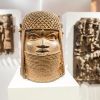Colonial heritage, cultural justice
2024 marks the 140th anniversary of the start of the historic Berlin West Africa Conference of 1884/85. Germany is working hard to come to terms with its colonial history.
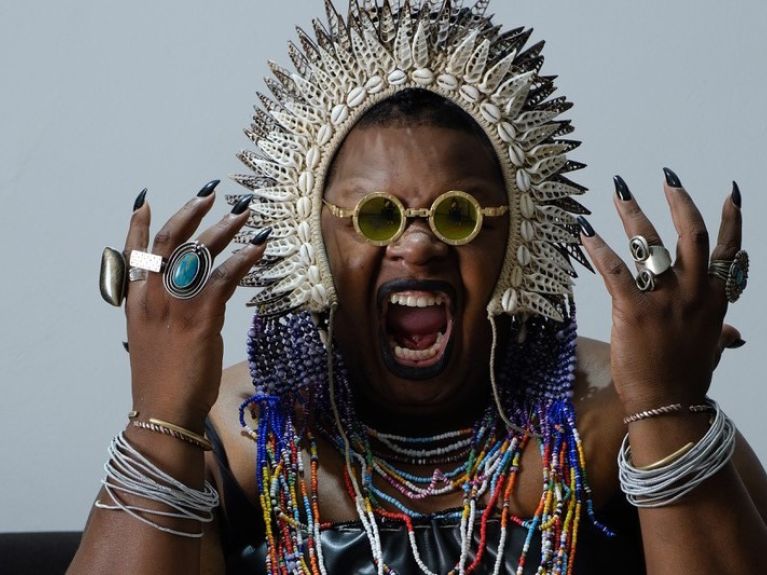
Its impact can still be felt to this day: a historic meeting in Berlin at the end of 1884/beginning of 1885 had severe consequences: In 1884, Chancellor Otto von Bismarck invited high-ranking envoys from the most important colonial powers to Berlin. “In the ongoing process of colonisation, more and more conflicts were arising between the colonial powers,” explains historian Dr. Felix Schürmann of the Erfurt University research centre for transcultural studies. “The key disagreement was over trade policy – the protectionism being pursued by the colonial powers. They all wanted to restrict their rivals’ access to resources and export markets in Africa so as to maximise their own benefit.” In order to avoid war breaking out between them, the colonial powers arrived at an agreement regarding their colonial interests in Africa at the historic Berlin West Africa Conference, also known as the “Berlin Conference”. They signed a set of rules on 26 February 1885, the so-called “Congo Act” – which none of them adhered to afterwards.
Almost 35 years of German colonial history
The historic Berlin West Africa Conference did nothing to mitigate the brutal expropriation and removal of countless cultural assets from Africa – if anything the opposite was true. The conference under Bismarck’s chairmanship marked the beginning of German colonial history, which lasted almost 35 years (1884-1919) until the end of the First World War. The German Empire maintained numerous colonies, including territories that today belong to Tanzania, Burundi, Rwanda, Namibia, Cameroon, Togo and Ghana. Colonies were also established up in Kiautschou in China, the Pacific islands of Papua-New Guinea, Samoa, Nauru, the Carolines, Palau, the Marianas and the Marshall Islands.
To this day, the world’s largest collection of cultural heritage from Cameroon is held in public museums in the Federal Republic of Germany, for example. This was recently brought to light by the Cameroonian-German research project Reversed History of Collections funded by the German Research Foundation.
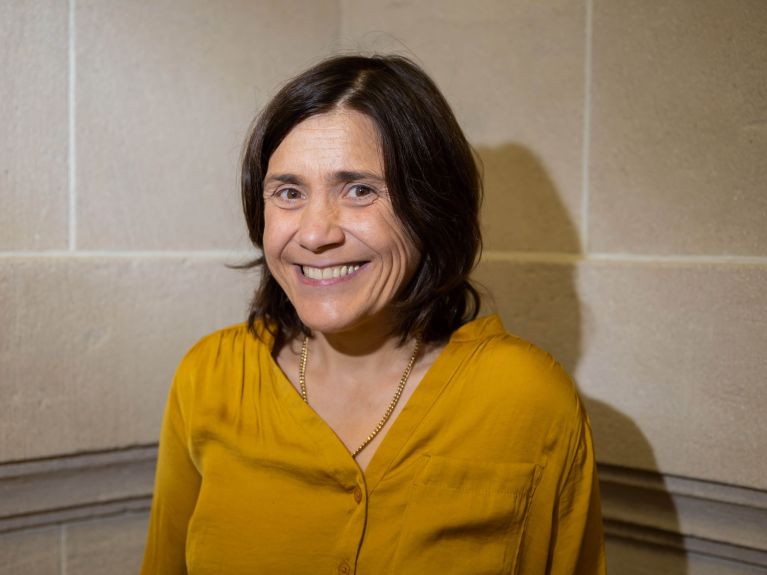
Comprehensive restitution debate in Europe
Based on this research, the international team led by art historian Professor Bénédicte Savoy of the Technical University of Berlin published the Atlas der Abwesenheit in open access in 2023. “For the first time, we were able to show that the overwhelming presence of 40,000 items of Cameroonian cultural heritage in German public museums today leaves just as many gaps in the cultural geography of Cameroon,” says Savoy, one of the most influential international experts on the provenance and restitution of artworks and looted art, who was recently awarded the Clarke Prize for Excellence in Arts Writing 2024 for her work. “This dialectic is just one small aspect of the comprehensive restitution debate that we’ve been seeing in Europe for around five years,” says Savoy. “All in all, an entire cosmos of interconnected problem areas comes into focus here – mobility and borders, cultural justice, racism, a history of violence and also epistemology.”
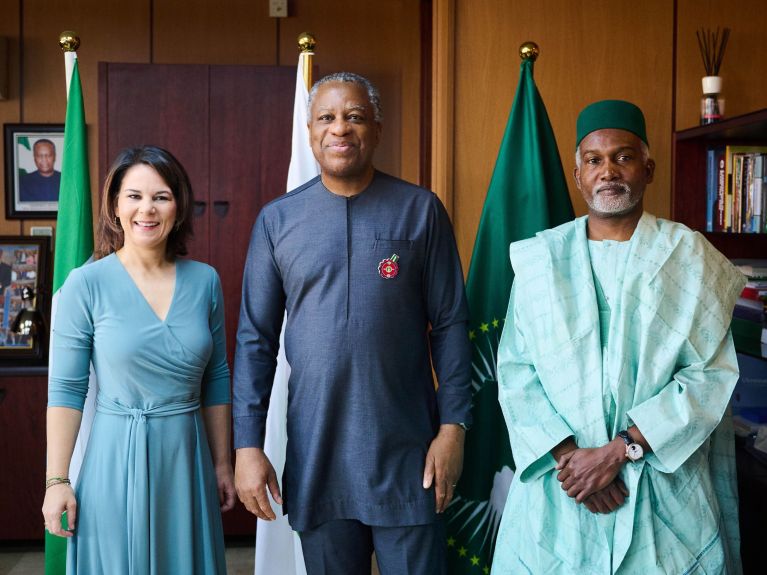
Restitution and provenance research
Collaborative research into the origins of items looted in the colonial era provides the basis for restitution and the potential relocation of cultural property to the countries of origin.
For this reason, the Federal Government and numerous experts in Germany believe it is particularly important to expand research into German colonial history. Since 2022, young researchers from countries that were formerly under German colonial rule have been addressing previously unanswered questions – under the German Colonial Rule (GCR) programme run by the German Academic Exchange Service (DAAD) and funded by the Federal Foreign Office.
Germany also provides funding for international cooperation in this area in various ways – for example through the DAAD’s TheMuseumsLab programme, which enables African and European museum experts to network and engage with each other.

Return of the Benin bronzes
As a result of more than ten years of international cooperation in the Benin Dialogue Group, it was ultimately possible to prepare the return of sculptures from the former palace in the Kingdom of Benin – the so-called Benin bronzes – from Germany to Nigeria in 2022. In addition, the Museum am Rothenbaum – World Cultures and Arts (MARKK) in Hamburg has created a digital knowledge forum entitled Digital Benin which brings together works of art from the former Kingdom of Benin that are scattered around the world.
Research into the origin of collections dating back to the colonial period is also being carried out by Dr. Ohiniko Mawussé Toffa, a research associate at the Central Archive and Ethnological Museum in Berlin since 2024: this museum is dedicated to the critical reappraisal of colonialism, not least because the 75,000 or so items in its African collection are directly linked to Europe’s colonial history. “Provenance research into colonial collections is very much in its infancy, so there’s still a lot to do in terms of methodology and theory,” says Toffa. Even a concept such as “object” is up for debate, for example.
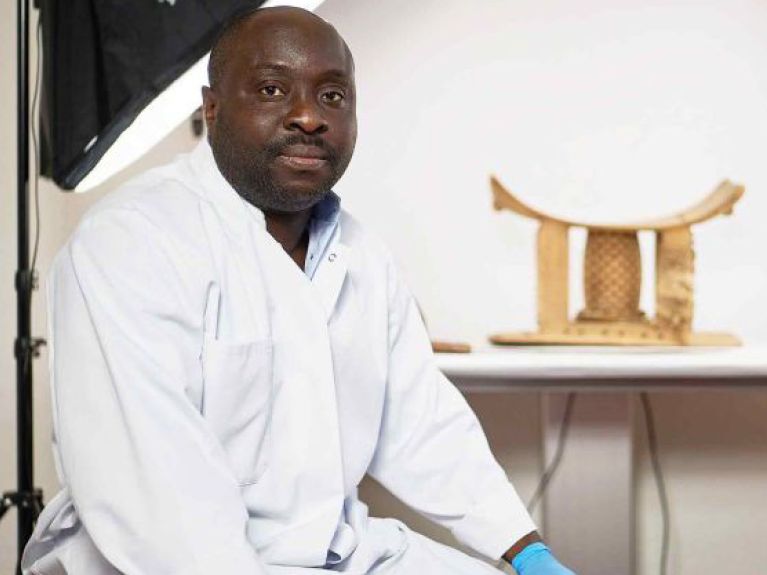
From “objects” to stories
“When does a thunder god become a museum object? What are these so-called objects or these Benin bronzes actually called in the living cultures of the communities concerned in Africa?” For Toffa, the histories begin with the names and words used in the context of origin: “a cultural history, a religious history, a spirituality, a history of knowledge. What we bring back with an object from our Eurocentric perspective can develop into other things in its place of origin that we might no longer have any control over in Europe."
What happens to concepts such as rationality or the history of science when we’re dealing with colonialism? “We still have a sizeable epistemological undertaking ahead of us,” says Bénédicte Savoy. “Namely integrating categories of knowledge and meaning that museums – in their obsession with categorisation – are currently unable to do justice to. In other words: it’s time to be silent ourselves and listen to others.”
How is Germany coming to terms with its own colonial history? Exactly 140 years to the day after 15 November 1884 – the start of the historic months-long Berlin West Africa Conference involving the most important European colonial powers – the German capital is providing its response with the debate event Decolonial Berlin Africa Conference 2024, which is being held as part of the festival Decolonial – What remains?. Featuring a decentralised exhibition, workshops, music, talks and an all-day city tour with contributions from science, art and activism over a period of four days, the festival will enable a multifaceted and critical appraisal of German colonial history.
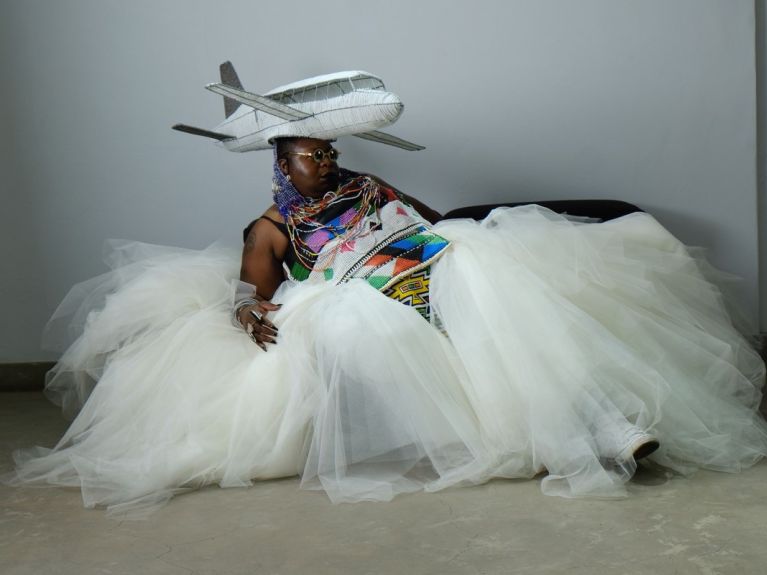
A modern response to a historic summit
The four-day “Decolonial” festival in mid-November 2024 is the culmination of an extensive research and exhibition project into colonial history which was supported by civil society organisations and cultural institutions in the state of Berlin and funded by the German Federal Cultural Foundation . Almost at the same time, the “Transcontinental” festival presents dance, theatre, performance and poetry from Cameroon, the Republic of Congo, Mozambique, Namibia, Nigeria, Rwanda and South Africa to the capital’s audience.

